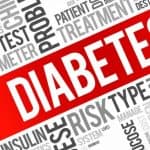
Heart Disease – 7 Primary Risk Factors
There are 7 primary risk factors associated with heart disease:
- Advancing age
- High blood pressure (hypertension)
- High blood fats (hyperlipidemia)
- High blood sugar (pre-diabetes or diabetes)
- Obesity
- Smoking, tobacco use, or second-hand smoke exposure
- Physical inactivity
Did you know there are other risks which have been identified or are being studied that can increase your risk of heart disease by as much as 48%? Following are some of the risks for heart disease that are important but not as widely publicized.
- Obesity is a risk factor, but did you know that being of normal weight with an unhealthy diet can increase your risk as well?
- Foods that contain high saturated fats, trans fats and cholesterol can raise LDL cholesterol levels. Food such as some meats, dairy products, cholesterol, eggs (mainly the yolks), certain types of shellfish, some baked goods, deep-fried, fast food, and processed foods contain these fats and should be limited in the diet.
- High sodium foods such as processed and/or canned food, as well as deli meats, should be eaten sparingly. These foods can contribute to hypertension especially if salt-sensitive.
- Added sugars in food will also give extra calories lacking good nutrients such as vitamins and minerals. Consuming too much sugar can lead to weight gain which can raise the risk of CHD. Limit foods that contain a lot of sugar such as several desserts, canned fruits stored in syrup, fruit drinks and non-diet sodas.
- Finally, too much alcohol may increase blood pressure and also add extra calories which may lead to weight gain. The amount of alcohol consumed should be limited.
- Stress and anxiety can also contribute to CHD. Unfortunately, stress and anxiety can trigger the arteries to tighten causing blood pressure to rise to increase the risk of heart attack. One of the most commonly reported events precipitating a heart attack is an emotionally upsetting event, especially one that involves anger. Stress may also cause an increase in habits such as smoking or overeating, which can indirectly raise the risk of CHD by triggering other risk factors. Chronic stress triggers chronic levels of cortisol which increases inflammation in the body.
- Poor hygiene can likewise be a culprit. Viral and bacterial infections from not regularly washing your hands and other poor hygiene habits can increase the risk of heart infections, especially if there is an underlying heart condition.
- Some studies have shown that bacteria in the mouth that are involved in the development of periodontal disease can move into the bloodstream and cause an elevation in C-reactive protein, a marker for inflammation in the blood vessels. These changes can, in turn, increase the risk of heart disease and stroke. There is research to both support and refute the possible link between periodontal disease and cardiovascular disease, and more studies are needed to see how the two may be linked. Regardless of the relationship, maintaining optimal oral hygiene is an important component of your overall health. (Cleveland Clinic)
- Lack of sleep is bad for your heart. A 2011 European Heart Journal review of 15 medical studies involving almost 475,000 people found that short sleepers had a 48% increased risk of developing or dying from coronary heart disease (CHD) in a seven to 25-year follow-up period (depending on the study) and a 15% greater risk of developing or dying from stroke during this same time. Interestingly, long sleepers — those who averaged nine or more hours a night — also showed a 38% increased risk of developing or dying from CHD and a 65% increased risk of stroke. Researchers caution that the mechanisms behind shortened and prolonged sleep and heart disease aren’t completely understood. “Lack of sleep doesn’t necessarily cause heart disease,” says Phyllis Zee, MD, PhD, professor of neurology and director of the Sleep Disorders Program at Northwestern University’s Feinberg School of Medicine. “It really increases the risk factors for heart disease.” (Web MD)
For more information about working with clients with chronic disease, see the Fitness Learning Systems Chronic Disease and Exercise Specialist Certificate Program. Specialize and become recognized as a medical fitness professional. Fitness Learning Systems is an IACET accredited continuing education provider.
By Fitness Learning Systems
Link to Courses Page: Diabetes and Metabolic Syndrome course and Chronic Disease Specialist Certificate






No comment yet, add your voice below!